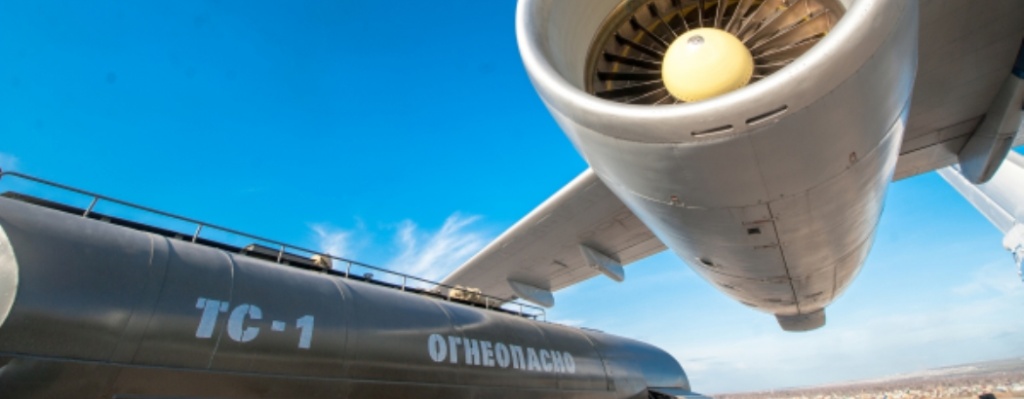Aviation Chemmotology

CIAM is the leading Russian center of aviation chemmotology, responsible for preparation of technical requirements, research and technical support of production and implementation, rational use and quality control of aviation fuels and lubricants. CIAM conducts studies relating to the development and implementation of new aviation fuels and lubricants in close cooperation with research institutes and organizations of the petrochemical industry, the Russian Academy of Sciences, and civil aviation.
Refinement of aircraft gas turbine engines results in increased thermal loads acting in these engines, which requires development of even more thermally stable fuels and lubricants. The results of fundamental studies of fuel and oil oxidation processes allowed to develop and implement a unified thermally stable jet fuel, which is now used in all aircraft. Advanced thermally stable oils were also developed.
Work Areas
Aviation Fuel
Studies aimed at improving the operating performance of jet fuel (increased thermal oxidation properties, antiwear properties, combustion performance, compatibility with structural and sealing materials, etc.)
Studies of interchangeability of Russian and foreign fuels and lubricants: recommendations for use, the Technical Guide "List of Foreign Aviation Fuels and Lubricants Recommended for Use in Russian Aircrafts".
Studies and the development of research-backed technical requirements to highly thermally stable alternative aviation fuel types (synthetic liquid jet fuel made of raw materials other than petroleum (coal, natural gas, biomaterials); condensed aviation fuel, aviation gasolines, including unleaded; liquid energy consuming components, and endothermic fuel.
Aviation Lubricants
The development of research-backed technical requirements to future lubricants (highly thermally stable oils for aircraft gas turbine engines; synthetic fluids; synthetic oils for reciprocating engines, etc.)
Studies aimed at enhancing operating performance of lubricants (increasing thermal oxidation properties, lubricating, foaming, and other properties).
Studies of chemical compounds demonstrating good potential for use as components of highly stable lubricants (base oils, thickeners, functional additives, etc.)
Studies of experimental and commercial lubricant prototypes, as defined by regulatory documentation, as well as their performance (volume and thin-layer thermal oxidation properties, fraction composition, foaming performance, evaporation capacity, lubricating properties, including performance at the Sh-3 gear rig, etc.)
Preparing recommendations for the use of advanced lubricants in present-day aircraft. Studies aimed at lubricants unification.
The development of new experimental calculation methods for investigating aircraft lubricant composition and properties. The development of a foamability evaluation method.
"Aircraft – Engine – Fuel and Lubricants" System
Developing the rationale for optimal requirements to fuel and lubricant quality based on efficiency criteria.
Aircraft performance enhancement using chemmotological methods.
Developing software packages for determining the chemical composition of new fuels and lubricants by engine and aircraft efficiency criteria. Studies of processes taking place in fuels and lubricants during equipment operation.
Studies aimed at establishing relationships between the fuel and lubricant quality and aircraft reliability, longevity, and cost efficiency.
The development of a new automated experimental calculation system for creating new and improving existing commercial fuels and lubricants. The system includes an extended experimental base utilizing physical and chemical properties and operational performance of fuels and lubricants, an automated method for design, optimization, and quality assessment of fuel and lubricant formulations based on experimental results. Use of the new system enables the development of fuels and lubricants with previously unattainable performance, and provides for considerable labor saving during such development.
Fuel Cells
Calculation and experimental studies of processes taking place in fuel cells in laboratory and test bench conditions. Conceptual design of fuel cell-based power plants and units for aircraft.
A rig for liquid fuel gasification investigation allows conducting the following studies:
-
Processes of syngas generation from hydrocarbon fuel;
-
Properties of solid oxide fuel cells (SOFC) with the maximum specific power capacity of 5 kW/kg, using pure hydrogen and syngas from hydrocarbon fuel;
-
Impact of operating parameters (operating temperature, pressure, fuel efficiency, syngas composition, etc.) on SOFC performance.
 Eng
Eng Rus
Rus